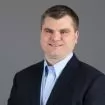The Centers for Medicare & Medicaid Services (CMS) recently issued an advisory opinion under the federal physician-self referral law (the "Stark Law") (Advisory Opinion No. CMS-AO-2021-2) (the "Advisory Opinion") clarifying that a physician-owned hospital may expand the number of its outpatient observation beds beyond the number it had on March 23, 2010 if such beds are not required licensed by, registered with, or otherwise authorized by the state.
The Stark Law prohibits a physician from making referrals for certain designated health services payable by Medicare to an entity with which the physician has a financial relationship, unless an exception applies.
The "whole hospital" exception to the Stark Law (the "Whole Hospital Exception") permits physician ownership or investment in a hospital if certain requirements are met. The Affordable Care Act amended the Whole Hospital Exception to impose additional restrictions on physician-owned hospitals. Among other things, physician-owned hospitals cannot increase the number of its operating rooms, procedure rooms, or licensed beds above the number physician-owned hospital had on March 23, 2010.
The physician-owned hospital requesting the Advisory Opinion (the "POH") certified that it had on March 23, 2010, and continues to have, 12 inpatient beds registered with the state in which it is located (the "State"). Further, the Hospital has 2 observation beds used solely for providing outpatient care that are not registered with the State. The inpatient beds are in large rooms equipped to accommodate patients from admission to discharge. The observation beds are in small rooms equipped only with basic monitoring services.
The Hospital requested confirmation from CMS that adding additional observation beds used exclusively for outpatient care would be permitted under the Whole Hospital Exception because the observation beds are not licensed by or registered with the State.
Although the State does not require licensure or certificate of needs of hospitals, it does require hospitals to register with the State. CMS observed that the State's registration scheme establishes certain categories of beds that are subject to registration and other categories of beds that are not subject to registration. The State only requires hospitals to report the total number of beds used primarily for providing inpatient care by the category of inpatient care provided as "beds" for registration.
Observation beds used solely for outpatient services are not "beds" that must be reported on a hospital's registration and, therefore, are not subject to registration with the State. More specifically, the POH confirmed with the State that if an observation bed was used for an extended stay, the extended stay would not result in the conversion of the observation bed to a bed subject to registration with the State.
Since observation beds are not the type of "beds" required to be registered by the State, CMS concluded that the addition of observation beds will not increase the number of beds for which the Hospital was licensed, registered, or authorized on March 23, 2010. Accordingly, the addition of the observation beds would not result in a violation of the prohibition on facility expansion under the Whole Hospital Exception.
The foregoing CMS analysis provides additional clarity on the scope of the facility expansion limitation for physician-owned hospitals and may provide an avenue for expansion through the addition of observation beds. However, as with all advisory opinions, the conclusions drawn by CMS in the Advisory Opinion described above are specific to the facts and circumstances described therein and may only be relied upon by the subject Hospital.
Accordingly, it is vital to carefully examine any increased facility operations of a physician-owned hospital in conjunction with state licensure and registration requirements to ensure that the specific requirements of the Whole Hospital Exception are fully satisfied.
The content of this article is intended to provide a general guide to the subject matter. Specialist advice should be sought about your specific circumstances.


